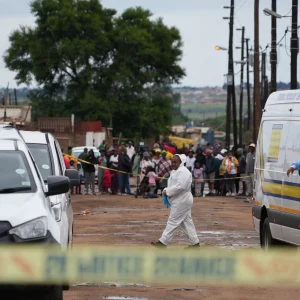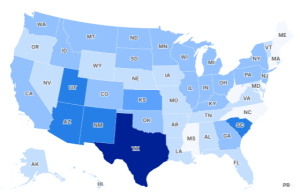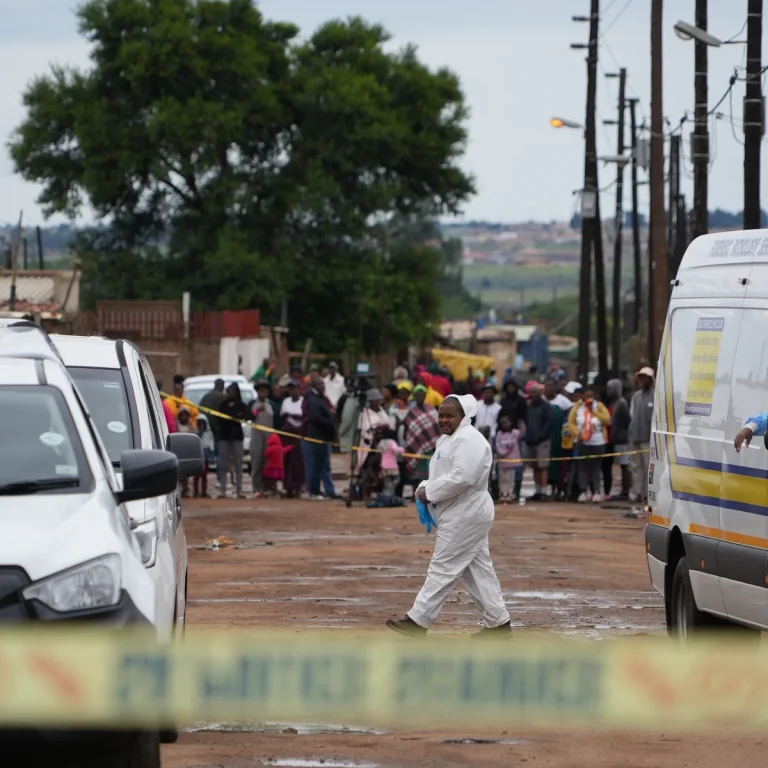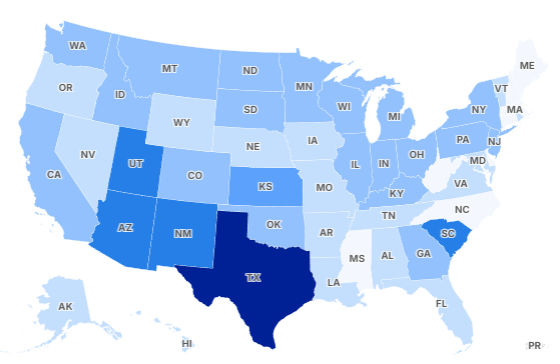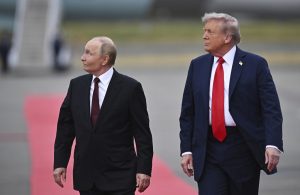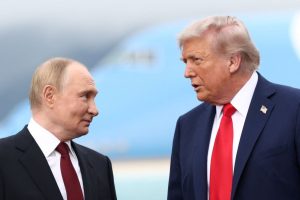The closely watched summit between U.S. President Donald Trump and Russian President Vladimir Putin in Anchorage, Alaska, ended with more questions than answers. While the two leaders did not announce a breakthrough in their discussions on Ukraine, it was a rare four-word comment from Putin — delivered in English — that captured attention and fueled speculation among observers and body language experts.
Talks in Alaska
The meeting, held on Friday, August 15, at Joint Base Elmendorf-Richardson, was the first extended face-to-face encounter between Trump and Putin since Trump’s return to the White House earlier this year. The agenda centered on efforts to broker a peace agreement that could bring an end to the devastating conflict in Ukraine.
For nearly three hours, the two leaders held private discussions before appearing together for a 12-minute press conference. Expectations had been heightened in the days leading up to the summit, with rumors circulating that an agreement could be imminent.
Trump sought to temper those assumptions, telling reporters that although progress had been made, a final deal remained elusive:
“We didn’t get there, but we have a very good chance of getting there. I’m going to start making a few phone calls and tell them what happened. But we had an extremely productive meeting, and many points were agreed to, and there are just a very few that are left. Some are not that significant. One is probably the most significant.”
An Unexpected Invitation
As the press conference drew to a close, Trump expressed gratitude toward Putin for traveling to Alaska. He recalled past encounters with the Russian leader and emphasized the urgency of reducing the human toll of the war.
“We had some good meetings over the years, right? Good, productive meetings over the years, and we hope to have that in the future. Let’s do the most productive one right now. We’re going to stop, really, five, six, seven thousand, thousands of people a week from being killed, and President Putin wants to see that as much as I do. So again, Mr. President, I’d like to thank you very much, and we’ll speak to you very soon, and probably see you again very soon. Thank you very much, Vladimir.”
In response, Putin leaned toward the microphone and, in clear English, offered an unexpected phrase: “Next time in Moscow.”
The remark appeared to catch Trump off guard. Smiling, he replied: “That’s an interesting one, I’ll get a little heat on that one. But I could see it possibly happening.”
If such a visit were to take place, it would be historic. No U.S. president has traveled to Russia since Barack Obama attended the G20 Summit in 2013.
Expert Interpretation
The seemingly casual exchange drew rapid analysis from commentators and experts. Body language specialist Darren Stanton suggested the choice to deliver the comment in English was deliberate.
“Trump was on the back foot with that comment,” Stanton explained. “I think Putin wanted to get the last laugh in — another power move.”
According to Stanton, the remark not only shifted the dynamic in the moment but also allowed Putin to claim the final word at the press conference, leaving Trump to respond rather than dictate the close.
The expert also noted that the decision by both leaders not to take questions was calculated. “They didn’t want to give anything away. It was all about control — projecting strength without exposing weakness,” Stanton said.
Signals in the Sky
Stanton pointed to other elements of the day that carried symbolic weight. Among them was the striking military flyover that greeted Putin upon arrival in Alaska. As the two leaders walked the tarmac together, four F-35 fighter jets and a B-2 Spirit stealth bomber soared overhead.
Critics accused Trump of staging an overly ceremonial welcome. But Stanton argued the display carried a different subtext: “I think with the fighter jets, a lot of people have criticized Trump for giving him a hero’s welcome with the red carpet and the military fly by. But it’s more or less saying, ‘I’ve got weapons as well, I’ve got the equipment as well.’”
The B-2, one of the most advanced aircraft in the world, has often been used as a symbol of U.S. military might. Its presence above Anchorage served as a reminder of the raw power each nation commands, even as they speak of peace.
Progress, but No Breakthrough
Despite the absence of a finalized peace deal, Trump maintained an optimistic tone. He stressed that the discussions had narrowed key points of disagreement and expressed confidence that continued dialogue could yield results.
“We had an extremely productive meeting… there are just a very few [issues] that are left,” Trump reiterated, while acknowledging that one outstanding point was particularly difficult.
Both leaders left Anchorage without signing an agreement, but the symbolic gestures, verbal exchanges, and body language may linger in the diplomatic memory as much as the negotiations themselves.
For now, the prospect of a future U.S. presidential visit to Moscow — floated by Putin in just four words — remains uncertain. Yet the remark highlights how even a brief phrase, carefully timed and delivered in English, can shift narratives and fuel debate long after the cameras are turned off.

James Jenkins is a celebrated Pulitzer Prize-winning author whose work has reshaped the way readers think about social justice and human rights in America. Raised in Atlanta, Georgia, James grew up in a community that instilled in him both resilience and a strong sense of responsibility toward others. After studying political science and creative writing at Howard University, he worked as a journalist covering civil rights issues before dedicating himself fully to fiction. His novels are known for their sharp, empathetic portraits of marginalized communities and for weaving personal stories with broader political realities. Jenkins’s breakout novel, Shadows of Freedom, won national acclaim for its unflinching look at systemic inequality, while his more recent works explore themes of identity, resilience, and the fight for dignity in the face of oppression. Beyond his novels, James is an active public speaker, lecturing at universities and participating in nonprofit initiatives that support literacy and community empowerment. He believes that storytelling is a way to preserve history and inspire change. When not writing, James enjoys jazz music, mentoring young writers, and traveling with his family to explore cultures and stories around the world.
